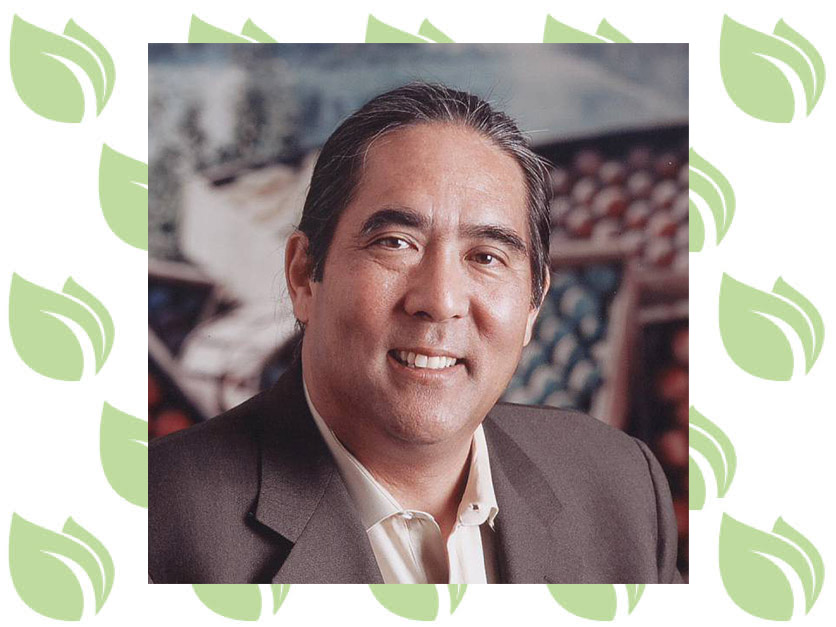This year's 2021 World Food Prize-Norman E. Borlaug International Dialogues highlighted the theme: Gaining Momentum, Food Systems Transformation in the Decade of Action. I was invited to participate on Roundtable Dialogue #3 covering Nutrition-Sensitive Food Systems. As one of several farmer panelists, I was able to share some observations and new experiences about delivering nutrient dense fruits and vegetables directly from local farms to regional food banks.
The pandemic has opened the eyes of the agricultural industry as the world's producers and distributors were forced to struggle with unprecedented disruption throughout the food chain. And while the vulnerabilities and weaknesses of the global food system became alarmingly evident, the strengths and resilience of this essential endeavor became very clear. We need to remember that when the world has abundance, the challenge is to have the will to distribute it to all. When we live with scarcity, we no longer have the capacity to feed everyone. We must recognize that agriculture's goal is to maintain the 'capacity' to feed a world and then, the public and private sectors must find the will and determination to end hunger and improve health through innovative collaboration.
The Roundtable panelists noted that the term "food insecurity" was an inadequate description of the kind of urgency that surrounds inadequate caloric consumption and poor diets. "Nutrition insecurity" better addresses the chronic problems of hunger, stunting mental development and poor health. The sourcing and delivery of nutrient dense calories has become the focal point of many new strategies for alleviating the scourge of hunger in this decade of action. We have grown complacent in our thinking that the provision of "end of life," expired, unsold and rejected food items, including not so fresh produce, is an efficient chain of calories from society to supply food banks with deliverables to those most in need. It is not.
The "new thinking" coming out of pandemic programs like the USDA's "Farm to Family" food box has truly shaken up the old food delivery paradigm. Producers and distributors were able to "pivot and turn" and nimbly retool their packing operations to create a more direct delivery link to scrambling Food Banks. For the first time, those most in need were receiving some of the freshest, nutrient dense food products in their lives.
That wake-up call has inspired a new alignment of resources, logistics and purpose for innovative possibilities to expand already existing farm-to-food bank programs in my region. Instead of custom growing four to six acres of fruits and vegetables each year for the local food banks (as my farm company and partners have done for over 25 years), we have asked the questions: "Why not grow 40 to 60 acres? Why not 400 to 600 acres and solve our regional food and nutrition insecurity issues?" The answer quickly became an affirmative response that indeed, all the proof-of-concept pieces were in place to scale and step up an innovative collaboration with community partners.
As a result, the "Harvest Solutions Farm" and the "Giving Farm", a team effort of local farmers, NGO's, the Second Harvest Food Bank, University of California Extension, Orange County Farm Bureau, FFA Chapters and other food chain partners will be growing more than 40 acres of fresh produce this year with the projected goal of a weekly delivery of 40,000 pounds of the freshest farm products to local food banks. Harvest of cabbage, broccoli and celery begins in November and will continue throughout the following year, shifting to spring and summer crops with the seasons. The multiple benefits that can come from building innovative, edible landscapes in urban areas are only limited by a lack of imagination.
I ended my remarks by encouraging participants to embrace a "do tank" mentality, recognizing that the "think tank" mentality drains productive resources and delays progress. How much longer do we need to "think" about ending hunger and nutrition insecurity in our time? Let's just get it done. It's time for action!
A.G. Kawamura, a founding co-chair of SfL, is a third-generation produce grower and shipper from Orange County, CA. He is a former Secretary of the California Department of Food and Agriculture, and. In addition to his service on multiple ag-related boards and advisory committees. Kawamura has pursued an end to hunger and malnutrition throughout his life, working closely with Regional Food Banks and stakeholders to create exciting urban ag projects that focus on nutrition, hunger, education and advanced food systems.
For more opinions and ag news, go to: www.agri-pulse.com.

